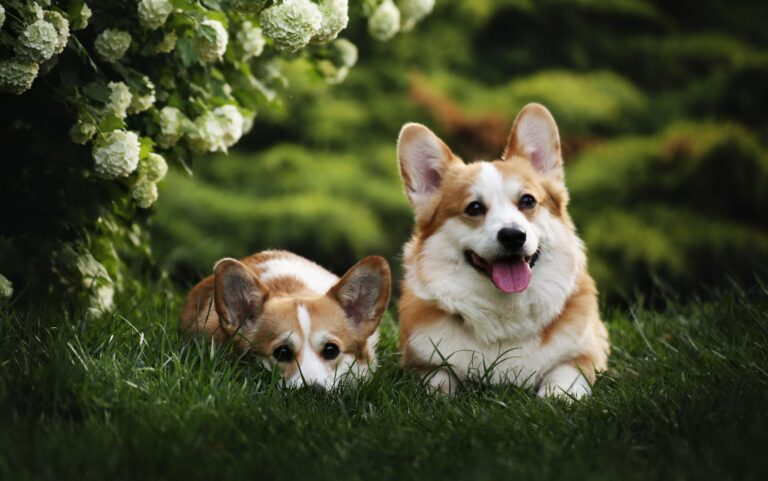
Contents
Corgis have long captivated the hearts of dog lovers around the world with their adorable appearance, charming personalities, and unmistakable fluffy butts. Among the different breeds of Corgis, the Pembroke Welsh Corgi stands out for its endearing fluffy posterior, which has become a defining feature of these beloved dogs. In recent years, there has been increasing interest and curiosity about the genetics behind corgis with fluffy butts, leading to a deeper exploration of the corgi fluffy gene. In this comprehensive article, we embark on a journey to unravel the mysteries surrounding corgis with fluffy butts, exploring their genetic makeup, origins, and the fascinating world of selective breeding.
Understanding the Corgi Fluffy Gene
One of the most intriguing aspects of corgis with fluffy butts is the genetic mechanism responsible for their plush rear ends. Unlike their counterparts, the Cardigan Welsh Corgis, which naturally possess a fluffy tail, Pembroke Welsh Corgis typically have a docked tail, making their fluffy rear even more noticeable. The gene responsible for this characteristic is known as the “fluffy gene,” scientifically referred to as the “Fgf5” gene.
The Fgf5 gene plays a crucial role in regulating hair length in dogs. Variations in this gene can result in different coat textures, including long, fluffy hair. In the case of corgis with fluffy butts, a mutation in the Fgf5 gene leads to the development of a longer and denser coat around the hindquarters, creating the adorable fluffiness that has endeared these dogs to millions.
The Origins of the Corgi Fluffy Gene
The origins of the corgi fluffy gene can be traced back to selective breeding practices aimed at enhancing certain physical traits in Pembroke Welsh Corgis. While the precise timeline of when the fluffy gene first appeared in the Pembroke Welsh Corgi population remains uncertain, it is believed to have emerged through spontaneous mutations or deliberate breeding efforts to introduce desirable coat characteristics.
Early breeders may have noticed the occasional appearance of corgis with longer and fluffier coats among their litters and recognized the aesthetic appeal of this trait. Over time, these fluffy-coated corgis were selectively bred to perpetuate the trait, leading to the establishment of a distinct lineage of corgis with fluffy butts.
The Appeal of Corgis with Fluffy Butts
What is it about corgis with fluffy butts that captures the hearts of so many dog enthusiasts? Beyond their undeniable cuteness, corgis with fluffy coats embody a unique charm and elegance that set them apart from their smooth-coated counterparts. The soft, plush fur adds an extra layer of cuddliness to these already lovable dogs, making them irresistible to anyone fortunate enough to encounter them.
Moreover, the fluffy butt serves as a delightful focal point, accentuating the corgi’s endearing waddle and playful demeanor. Whether frolicking in the park or lounging at home, corgis with fluffy butts exude an irresistible charm that leaves a lasting impression on everyone they meet.
Selective Breeding and the Corgi Fluffy Gene
Selective breeding has played a significant role in shaping the appearance and temperament of Pembroke Welsh Corgis, including the prevalence of fluffy coats. Responsible breeders carefully assess the genetic makeup of their breeding stock, aiming to produce healthy puppies with desirable traits while minimizing the risk of hereditary health issues.
When breeding for the fluffy coat trait, breeders must consider various factors, including the presence of the Fgf5 mutation, coat texture, and overall conformation. By selectively pairing corgis with fluffy coats, breeders can increase the likelihood of producing offspring with the desired trait, ensuring the continuation of the lineage of corgis with fluffy butts.
Conclusion:
In conclusion, corgis with fluffy butts represent a delightful intersection of genetics, selective breeding, and undeniable cuteness. The presence of the corgi fluffy gene, manifested through the Fgf5 mutation, gives rise to the fluffy coats that adorn these beloved dogs’ hindquarters, adding to their charm and appeal. Whether you’re a seasoned corgi enthusiast or simply someone who appreciates adorable canine companions, there’s no denying the allure of corgis with fluffy butts.
If you’re interested in welcoming a corgi with a fluffy butt into your life, consider reaching out to reputable breeders like Pembrokes of Walnut Creek. With their dedication to responsible breeding practices and commitment to producing healthy, well-adjusted puppies, Pembrokes of Walnut Creek is a trusted source for Pembroke Welsh Corgis with fluffy coats.